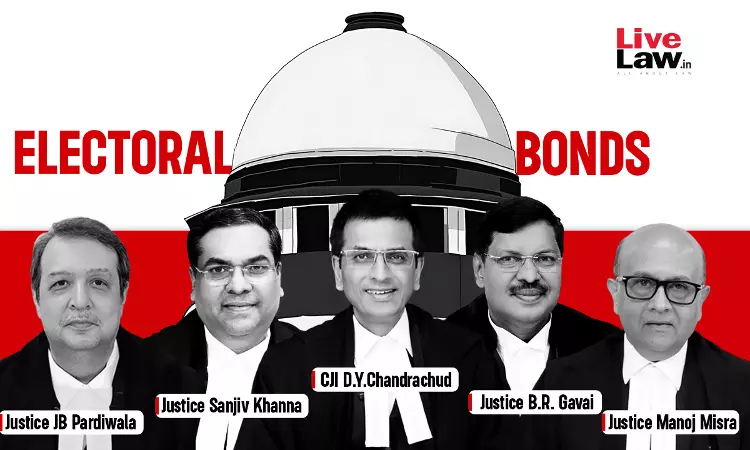BREAKING | Supreme Court Strikes Down Electoral Bonds Scheme As Unconstitutional, Asks SBI To Stop Issuing EBs
Awstika Das
15 Feb 2024 11:04 AM IST

The Court asked the Election Commission of India to publish the details of electoral bonds contributions on its website by March 13.
Next Story


